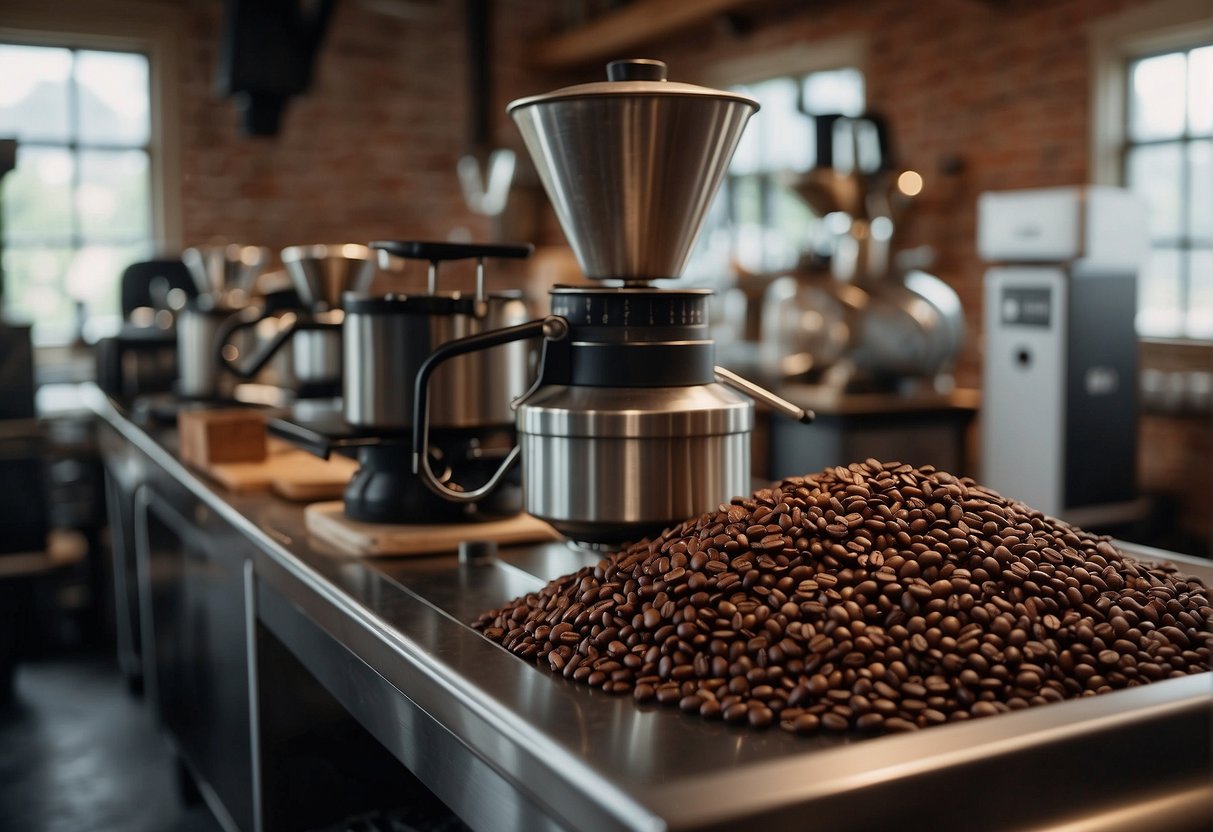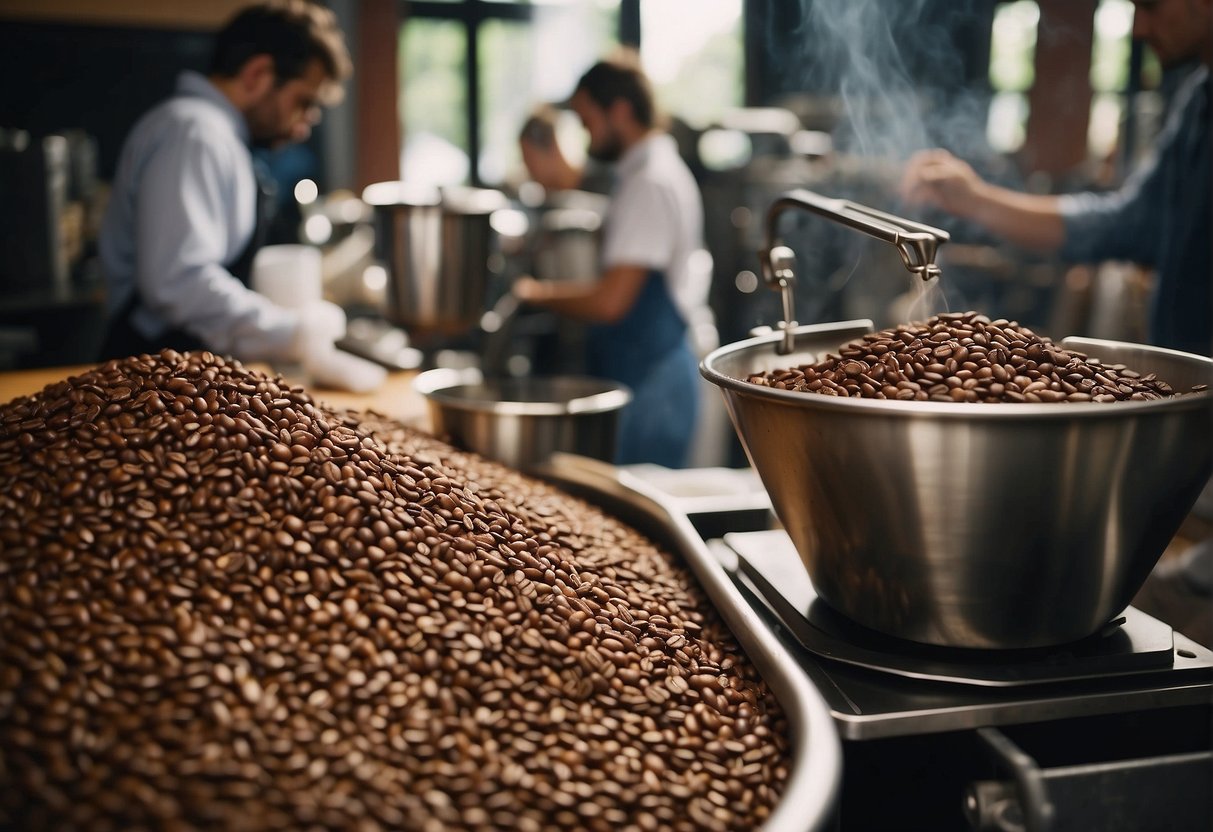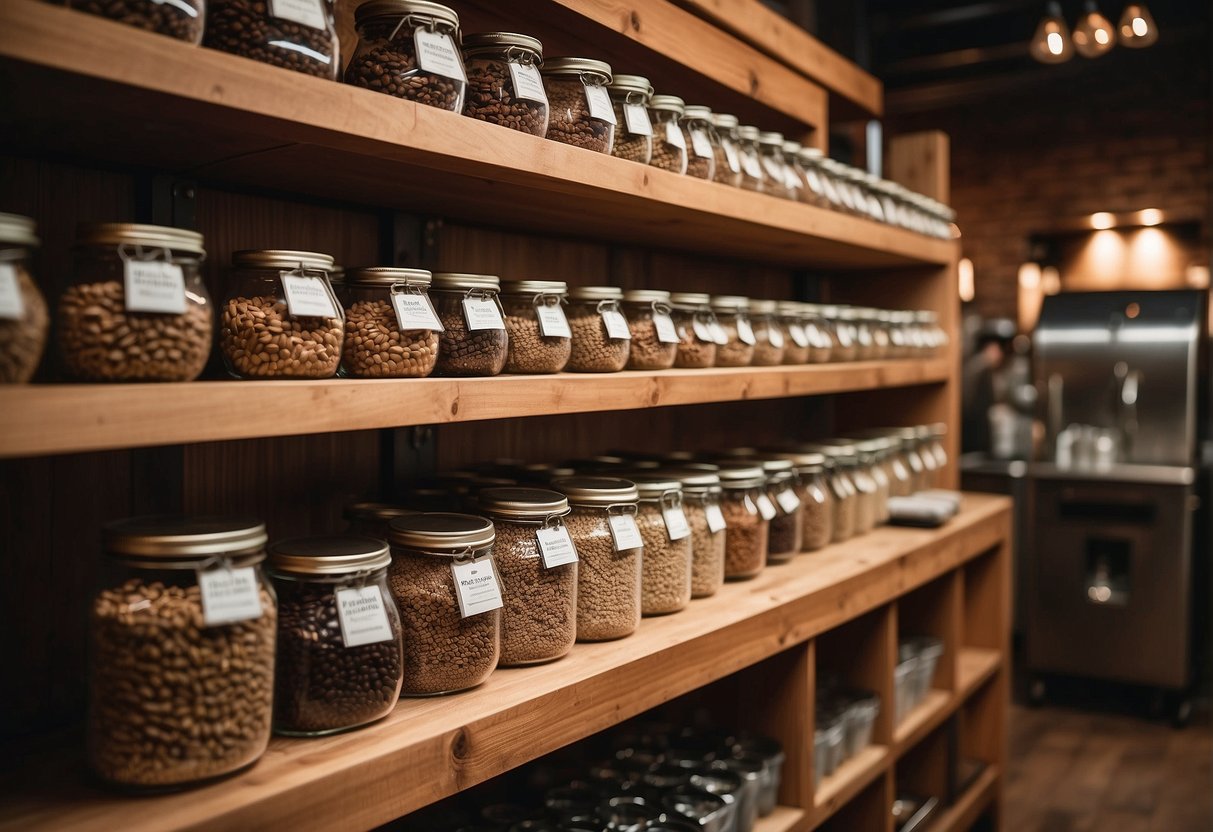New Hampshire offers a rich tapestry of local coffee roasters, each contributing to the community with their unique approach to this beloved beverage. The state’s coffee culture is anchored by a commitment to quality, with many small-batch roasters taking pride in their craft. They source premium beans from around the world to deliver a diverse range of flavors tailored to the palates of their clientele. This dedication to the art of roasting ensures that every cup of coffee is not just a drink but an experience, reflecting both the roaster’s skill and the distinctive characteristics of the beans used.

In the quaint towns and vibrant cities of New Hampshire, coffee roasters are often at the heart of the local community. They serve as gathering places where people meet, exchange ideas, and enjoy great coffee. The state’s specialty coffee scene is flourishing, offering various options ranging from classic blends to single-origin roasts that highlight the unique tasting notes of each region’s beans. New Hampshire’s roasters are passionate about their craft, often engaging in direct trade to ensure ethical sourcing and supporting sustainable practices in the global coffee community.
These artisans of coffee roasting in New Hampshire strive to bring out the best in the beans, utilizing their expertise to roast them to perfection. The result is a range of coffee profiles that cater to different preferences, whether one enjoys a bright and fruity light roast or a deep and smoky dark roast. Their products are more than just a morning necessity; they represent the collective effort of dedicated roasters who seek to enhance the daily ritual of coffee drinking for their customers.
History of Coffee Roasting in New Hampshire
https://www.youtube.com/watch?v=OgXJg9qanqU&embed=true
Coffee roasting in New Hampshire is a tradition that reflects the state’s commitment to community, quality, and local enterprise. From the early movers who set the stage for the coffee culture to the substantial growth witnessed in later years, the history is rich and vibrant.
Pioneers of the NH Coffee Scene
New Hampshire Coffee Co. began its journey in 1989, when Michael Kirk responded to the need for quality coffee. He started Piscataqua Coffee Roasting Co. in a barn in Eliot, Maine, which laid the groundwork for what would become a seminal part of the local coffee scene. Kirk’s approach was fueled by a dissatisfaction with substandard coffee, paving the way for a state-wide appreciation for well-crafted brews. Residents in New Hampshire found their palates evolving, thanks in part to such pioneers (New Hampshire Magazine).
Growth and Expansion
The growth and expansion of the coffee roasting industry in New Hampshire reflect the broader national trend of artisanal and specialty coffees. As communities began to value the flavors of high-quality, freshly roasted coffee, local businesses like NH Coffee Roasting Co. thrived by sourcing 100% Arabica beans and crafting unique seasonal flavors to delight local and state markets. Their ongoing commitment to both tradition and innovation in coffee roasting represents the robust nature of New Hampshire’s local industry (NH Coffee Roasting Co.).
Popular Coffee Roasters in NH

New Hampshire is known for its vibrant coffee culture with several local roasters offering a wide array of flavors and profiles. These roasters take pride in their craft, bringing both small-batch and large-scale production to the coffee enthusiasts of the Granite State.
White Mountain Gourmet Coffee
Location: Manchester
Notable Offerings:
- Variety of gourmet blends
- Single-origin coffees
White Mountain Gourmet Coffee is a staple for coffee lovers in and around Manchester. This establishment is celebrated for its expertly roasted gourmet blends that cater to a diverse palette. They source high-quality beans to create distinct flavors that resonate with coffee aficionados across New Hampshire.
Prime Roast Coffee Co
Location: Keene
Specialty:
- Sustainable sourcing
- Handcrafted roasts
In Keene, Prime Roast Coffee Co commands attention with its commitment to sustainably sourced beans and handcrafted roasts. They are known for their meticulous roasting process, ensuring each cup is brimming with flavor and character.
Mill City Roasting
Location: Portsmouth
Popular For:
- Artisanal approach
- Local collaborations
Mill City Roasting in Portsmouth brings an artisanal approach to coffee roasting. Collaborating with local businesses, they’ve cultivated a loyal following. Their precise roasting technique highlights the unique attributes of each bean, offering an unforgettable experience to the coffee community of New Hampshire.
Specialty and Single Origin Offerings

In New Hampshire, coffee enthusiasts can enjoy a diverse range of single origin and specialty coffees. The state is home to roasters committed to offering high-quality, distinctive coffee experiences through a meticulous selection of beans and ethical sourcing practices.
Sourcing Practices
Many New Hampshire roasters engage in direct sourcing, ensuring that they provide single origin coffee from specific regions like Peru, known for its rich coffee heritage. These practices allow them to offer unique flavor profiles while supporting fair trade and organic coffee initiatives. Roasters often have relationships with individual farms or cooperatives, which bolsters transparent and ethical sourcing, guaranteeing both quality and sustainability.
Specialty Coffee Labels
Specialty coffee labels in New Hampshire signify a standard above regular commodity coffees. They often encompass a variety of certifications, such as:
- Fair Trade: Ensures farmers receive fair prices, contributing to community development.
- Organic: Certifies coffee grown without synthetic fertilizers or pesticides, promoting environmental health.
By prioritizing these labels, New Hampshire roasters not only deliver exceptional taste but also relay their commitment to ethical and sustainable coffee production.
The Roasting Process
The roasting process is an intricate dance of time and temperature that transforms raw, green coffee beans into the richly flavored beans that we enjoy. This process develops the unique characteristics and flavors of coffee and is what sets apart different roasters.
Understanding Roast Profiles
Coffee roast profiles dictate how the flavor, aroma, and acidity of the coffee will develop. Artisans at roasting houses, such as NH Coffee Roasting Co., carefully select their roast profiles to enhance the inherent qualities of each bean. They monitor variables including temperature ramp-up time and final roast temperature. The goal is to achieve a consistent and optimal profile that brings out the best flavors.
Dark vs. Medium vs. Light Roasts
Roast levels greatly influence the taste of coffee, with light roasts typically offering higher acidity and a more pronounced origin flavor. Light roasts can range from a light brown color to a more cinnamon shade, with no oils on the bean’s surface. Medium roasts, a favorite in places like Woodshed Roasting Company, strike a balance with a richer flavor, and a non-oily surface. Medium-roasted beans are often described as having a balanced flavor, aroma, and acidity.
Dark roasts, showcased by the specialty selections from Wayfarer Coffee Roasters, sport a dark brown color with a shiny, oily surface, and a pronounced bitterness. Within these categories, variations exist such as “medium-dark” or “French roast,” each with its distinct profile. Such specialty roasters may offer organic options, highlighting a commitment to not using synthetic pesticides and fertilizers in the cultivation of their coffee beans.
Additionally, decaf options are also available, where the caffeine has been extracted from the beans before roasting. Regardless of the roast level, freshness is vital for flavor and is a hallmark of small-batch roasting, ensuring the consumer enjoys the coffee at its peak.
Cafe Culture and Community Impact
In the state of New Hampshire, cafes serve not just as places to enjoy a cup of coffee, but also as hubs for community engagement and urban revitalization.
Café La Reine and Urban Appeal
Café La Reine situated in the heart of the city, exemplifies how a coffee shop can become a cornerstone for urban life. They offer a space where community conversations flourish, catalyzing connections between diverse groups of people. With its prime location on a busy street, it invites a steady stream of locals and visitors alike, making it a pivotal venue for events and daily interactions that define city living.
Rural Coffee Shops and Their Role
Contrasting the urban coffee scene are the rural coffee shops that dot the scenic stretches of New Hampshire. These establishments are more than mere stops for a caffeine fix; they are vital gathering spots for the surrounding community. They provide a rare and crucial space in rural areas for residents to bond, share news, and support local agriculture and goods.
